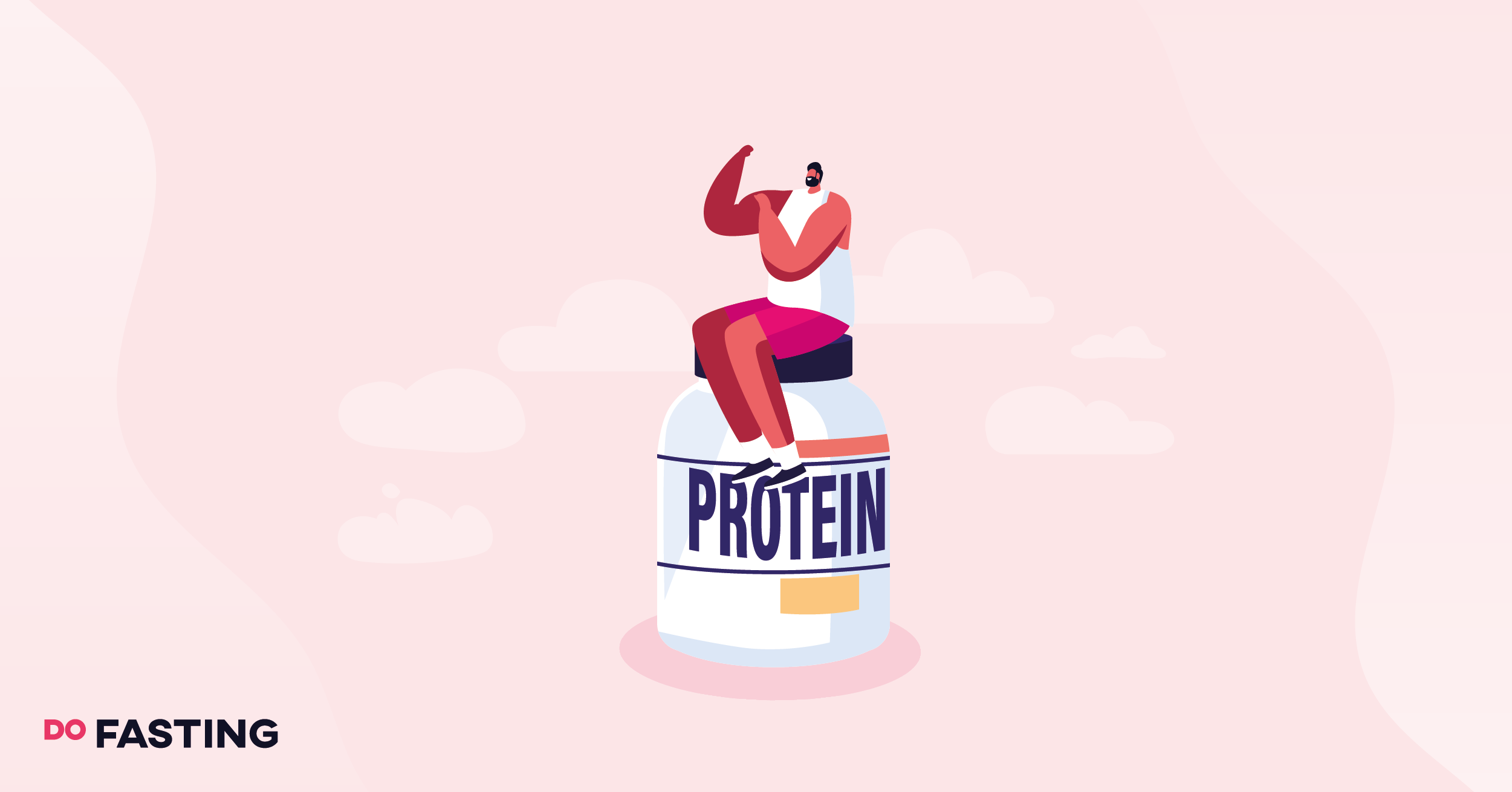Contents
Does Splenda Break a Fast?
In short — yes, Splenda does break a fast, and it doesn’t matter what your fasting regimen is.
Splenda is produced from sucralose, and some research suggests that consuming sucralose might affect blood sugar levels and elevate insulin levels.
It could be okay to consume small quantities of Splenda during a fast. Nonetheless, there are no guarantees about how your body will react to the sweetener, so it’s recommended that you stick with putting Splenda into your coffee during your eating window.
Take a
1-minute quiz
and discover how much weight you can lose with DoFasting!

What Is Splenda?
Splenda is considered to be a low-calorie sweetener. It’s usually used as an alternative to regular sugar in lower-calorie foods. However, Splenda has a different chemical structure than other artificial sweeteners.
The main difference is that Splenda is made out of real sugar. Splenda is produced from sucralose that’s chemically altered to be 400—700 times sweeter than sugar and without calories.
Moreover, Splenda includes 95% D-glucose and maltodextrin, both of which are easily metabolized by the body, with a small amount of mainly indigestible sucralose.
The nutritional value of Splenda:
- Protein — 0 g
- Fat — 0 g
- Carbohydrates — 0.9 g
- Energy — 3.31 kcal
- Sugar — 0.8 g
- Potassium — 0.04 g
Overall, Splenda is generally considered to be safe but can have some negative side effects. Further human testing is required to reach more accurate conclusions.
The most essential thing is that you consume this artificial sweetener in moderation so that it does not harm your health.
How Splenda Affects Your Overall Weight Loss Results
When it comes to losing weight, it’s important to keep your caloric intake, blood glucose levels, and metabolic health in check. That’s why Splenda might be a good alternative to sugar.
However, evidence suggests that low-calorie artificial sweeteners might not significantly impact weight loss. According to a meta-analysis of randomized trials, artificial sweeteners might help lower body weight only by about 1.7 pounds.
Still, swapping regular sugar for Splenda might help limit calories and promote fat loss. If you struggle to keep track of your calories, you might want to try out the DoFasting app. It’s an app that promotes healthy habits and helps you reach your weight loss goals.
With the app’s calorie tracker, you’ll be able to monitor your food consumption at all times.
How Splenda Affects Blood Sugar and Insulin
Even though artificial sweeteners have been marketed as being better than sugar in that they don’t raise insulin or blood sugar levels, that’s not entirely true.
A study conducted on healthy, normal-weight adults, who were consuming artificial sweeteners on a daily basis, shows that sucralose doesn’t cause an insulin response and has no effect on blood glucose levels.
However, research on obese adults who do not normally consume artificial sweeteners found that it increased blood glucose levels by 14% and insulin levels by 20%.
By looking at the findings, we could conclude that it might depend on how your body is used to the substance. Despite that, more research is needed to draw accurate conclusions.
Intermittent fasting has been shown to improve insulin resistance and control glucose and lipid metabolism. Therefore, Splenda might offset these health benefits. Besides, keeping your blood sugar levels in a regular range is vital during fasting, as it might increase your appetite otherwise.
An increase in blood sugar levels or insulin spikes can create major health concerns for diabetics. Hence, if you have diabetes, you should limit Splenda’s consumption or consult a medical professional.
Take a
1-minute quiz
and discover how much weight you can lose with DoFasting!

How Splenda Affects Gut Health
Some people do fasting to let their gut rest. Not consuming any food doesn’t continually activate your digestive system. It also can be beneficial for your gut microbiome as it increases the amount and diversity of good bacteria.
However, a few animal studies have shown that sucralose upsets the gut microbiome balance. The good gut bacteria in your gut are essential for your overall health.
The good bacteria help your digestive and immune systems and reduce inflammation in the body. Long-term inflammation can result in a variety of health issues, including diabetes and obesity.
More research is needed to know whether Splenda is actually bad for gut health.
Does Splenda Have Any Health Benefits?
Splenda only has a few calories and is sweeter than table sugar. Therefore, you don’t need much of it to sweeten your meal or drink. In this case, it might help regulate your calorie intake during weight loss or help prevent weight gain.
Also, unlike other artificial sweeteners, Splenda doesn’t harm your teeth or cause tooth decay.
Fasting-Friendly Sweetener Alternatives
Here are some common sweeteners that are safe during intermittent fasting, along with your black coffee.
Stevia
Stevia is a sugar substitute made from the leaves of the stevia plant. It’s completely natural, compared to Splenda, and has no artificial ingredients, carbs, or calories.
Stevia is only 100 to 300 times sweeter than sugar.
The sweetener doesn’t contain any calories and doesn’t raise insulin levels. Therefore, Stevia doesn’t break a fast. Also, research done on Stevia and autophagy shows that the sweetener doesn’t affect cellular processes.
Yet, use a few drops of the product because too much of it might still interfere with your intermittent fasting routine.
Monk fruit
Monk fruit is a calorie-free sweetener that’s about 200 times sweeter than sugar. It’s a fruit plant that grows in China.
The sweetener has no carbs or fat, and therefore, it shouldn’t break your fast. However, some research shows that it can cause an insulin response in some people.
Monk fruit is still a better sweetener than Splenda since it doesn’t have any calories, is one of the best natural sweeteners, and contains mogrosides. Mogroside is an antioxidant that gives sweeteners to monk fruit.
Erythritol
Erythritol is a type of carbohydrate called sugar alcohol used as an alternative to sugar.
The sweetener has zero calories. Moreover, your small intestine quickly absorbs it and gets it out of your body. This implies that Erythinol doesn’t transform into energy.
Sugar alcohol doesn’t spike your blood sugar levels or cause an insulin response. Therefore it is a better sweetener than Splenda during your fasting window.
Erythritol is a non-nutritive sweetener that, in some people, increases cravings. When fasting, keep this in mind and replace erythritol with stevia, monk fruit, or other sweeteners if needed.
Take a
1-minute quiz
and discover how much weight you can lose with DoFasting!

Does Splenda Break a Fast: Final Thoughts
Splenda is an artificial sweetener that can be used as a go-to sweetener to replace table sugar. However, Splenda does break a fast since it can cause an insulin response and influence blood glucose levels.
You can only consume it on your eating window.
Therefore, if you’re intermittent fasting for gut rest, weight loss, or to burn fat, choose fasting-safe, calorie-free, natural sweeteners such as stevia, monk fruit, or erythritol.
See how DoFasting will improve your life
Find out what works for you with this 60-sec quiz approved by our experts and get your personal revolutionary fasting assistant.
Start the Quiz














